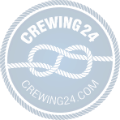
MARCH 13, 2013 — As the official investigation headed by the Bahamas Maritime Authority continues to probe the engine room fire that broke out aboard the cruise ship Carnival Triumph last month, Carnival Cruise Lines has turned its attention to lessons to be learned from the incident.
It is also looking at what additional operational redundancies might be available.
That was the message from Carnival Cruise Lines CEO Gerry Cahill, speaking at the state of the industry session at this year's Cruise Shipping Miami event.
Following is the text of his remarks:
Good morning everyone.
I'm going to focus most of my remarks on what we are doing today and briefly summarize what happened.
The Carnival Triumph was on the last day of a cruise returning to Galveston when it had an engine fire in the aft engine room. The cause of the fire was a leak which developed in the fuel return line.
The good news is the ship's fire suppression system and the crew were able to contain the fire and put it out. The ship does have two independent engine rooms, but unfortunately damage from the fire caused both engine rooms to be knocked out of commission.
At that point in time, the emergency diesel generator kicked in and provided power for emergency facilities until we returned the ship to Mobile.
Once the fire occurred, I can tell you that our highest and only priority was the safety of our guests and crew. We tried to make things as comfortable as we could for them in a tough position and also to get everybody home as quickly and as safely as we possibly could.
When I visited on the Carnival Triumph when it got to Mobile on Thursday, it was very nice, very heartwarming to talk to so many guests and find out what a great job the crew had done in trying to achieve that during the days they were at sea.
The ship has been back for about three weeks and our guests are all home safely and as soon as that happened our focus shifted. We are now focused on the lessons we can learn from the incident and also what additional operational redundancies might be available.
So, what we've done is start a comprehensive review of our entire fleet and that review focuses on four things:
First, looking at prevention, detection and suppression of fires.
Second, engine room redundancies.
Third, what additional hotel facilities might be provided and might run off the emergency generators.
And then fourth, the changes we can make from the first three items and how we implement those.
Now, I can assure you since this fire has occurred it has been the number one priority for both Carnival Cruise Lines and Carnival Corporation. We have a number of experts from a lot of different disciplines involved in the process of performing this review, including experts in fire safety; naval architects, marine engineers, electrical engineers, and mechanical engineers.
We have people, from within the Carnival Cruise Lines organization, from Carnival Corporation, as well as our sister brands involved. In addition we have pulled in experts from shipyards, engine manufacturers, electrical machinery equipment manufacturers and class society.
We have a number of different teams working on this. They are located in four different locations right now. We have a group in Mobile; we have a group in Miami; we have group in Southampton, and we also have a group in Trieste, Italy, working on this.
The Carnival Splendor, as many of you know, had a fire in 2010. That fire was from a very different source. That was from a catastrophic failure of a diesel generator and, in reviewing things after that fire, we put a number of changes in place. We spent millions of dollars from the lessons learned from the Carnival Splendor fire, and many of those things worked. They helped us to extinguish this fire more quickly. Obviously, there is more we will learn in our current review, as we look for additional opportunities for more redundancies throughout our fleet.
We are also assisting the Coast Guard investigation, the NTSB and the Bahamian government. Carnival Corporation is also doing a simultaneous review of all the ships across all of our sister brands trying to do the same type of thing we are doing at Carnival Cruise Lines. They have an independent team that is working on this, and we'll be part of that too. And thirdly, as Christine Duffy mentioned earlier, CLIA is also doing an assessment, and we will be part of that.
This review is very comprehensive, it will take us a little bit of time to complete it, but you can rest assured that it is our highest priority throughout the entire organization. It is the thing we are most focused on and we will come up with solutions that we can implement across our fleet.
Thanks
Response to question asking what you would say to someone who has never cruised and may have concerns:
Well, first of all, something like this is a very rare incident. If you look at the history of the industry, there have been very few incidents like this, and the good news is when we've had things like this we've always been able to deal with them safely. No one was injured on the Carnival Triumph, no one was hurt, no one was ever at risk. We have a very good safety record overall and the good thing is, we always, as an industry, try to learn from these things and we try to get better. I think what you're seeing now, is all the brands coming together to try and determine the lessons we can learn from this so we can improve.
![[ad-side]](http://www.crewing24.com/ad_images/48_banner.jpg)
![[ad-side]](http://www.crewing24.com/ad_images/102_banner.jpg)
![[ad-side]](http://www.crewing24.com/ad_images/93_banner.jpg)
![[ad-side]](http://www.crewing24.com/ad_images/103_banner.jpg)
![[ad-side]](http://www.crewing24.com/ad_images/95_banner.gif)
![[ad-side]](http://www.crewing24.com/ad_images/94_banner.png)
![[ad-side]](http://www.crewing24.com/ad_images/107_banner.jpg)
![[ad-side]](http://www.crewing24.com/ad_images/86_banner.png)
![[ad-side]](http://www.crewing24.com/ad_images/115_banner.jpg)
![[ad-side]](http://www.crewing24.com/ad_images/100_banner.jpg)